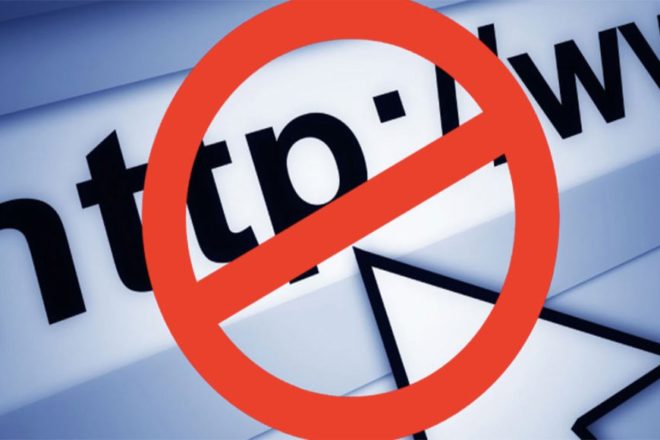
Ref: 115/2019
On Thursday, 17 October 2019, the Magistrate Court in Ramallah responded to the Attorney General’s request and issued a decision to block 59 news and political websites. The Palestinian Center for Human Rights (PCHR) stresses that the freedoms of expression and the press are protected by the Palestinian Basic Law and should not be restricted unless a legitimate national interest exists, as defined by law. PCHR affirms that the power to restrict some forms of expression should not be exploited against the opposition, emphasizing that restrictions should be kept at a minimum in accordance with the values of a democratic society where the freedom of criticism in all its forms is respected.
The verdict stated, “These websites published texts, photos and essays that threaten national security and civil peace, disturb the public order and stir up the Palestinian public opinion. Therefore, in accordance with paragraph (2) of Article (39) of the Law by Decree No. (10) Of the 2018 Cybercrimes Law which allowed blocking websites; the court decided to approve the Attorney General’s request and block the abovementioned websites. The decision is issued on behalf of the Palestinian Arab people on 17 October 2019.”
The blocking included 59 websites, some of which are affiliated with Hamas and the Islamic Jihad Movements and others are affiliated with the Democratic Reform Trend in Fatah Movement, as well as other independent and anonymous websites. It should be noted that this decision is effective for 6 months and is renewable according to paragraph (2) of Article (39) of the Cyber-Crimes Law.
Today, the Palestinian government expressed in a statement its rejection of the decision and demanded the Attorney General to rescind it, stressing the importance of adherence to international conventions signed by the State of Palestine. In their response to the decision, the Journalists Syndicate considered the court’s decision “a black day for the Palestinian press,” and confirmed they will pursue legal action to cancel this decision.
PCHR asserts that the State of Palestine is legally obliged to respect the freedom of opinion and expression in accordance with Article 19 of the International Covenant on Civil and Political Rights (ICCPR), which it acceded to in 2014.
Meanwhile, PCHR adheres that freedom of expression is subject to certain restrictions as stipulated in Article 19.3. of ICCPR; the Article defined strict conditions for said restrictions that asserted the right to political criticism, including stinging criticism, as well as guarantees to the right of the public to access information so long they are not classified as confidential.
PCHR’s position is that the court’s decision was mistaken and that its interpretation of what constitutes a threat to national security, order and civil peace was an overreach. Ideally, courts should interpret Article 39, in accordance with international standards that assert State tolerance of stinging criticism to the maximum degree possible. Additionally, PCHR reiterates that spreading rumors and enticing public opinion with lies is usually the result of a lack of transparency within State institutions and lack of trust. Therefore, the PA should promote transparency and access to information in its institutions and stop violations if it wishes to maintain stability.
In this context, PCHR considers this decision an insult to the judicial authority, and a move towards politicizing it; thereby, directly undermining order and rule of law. It is also in contrast with recent efforts to hold public elections, which are preconditioned by freedom, including freedom of participation, freedom to campaign, even freedom to object to their conduct. Consequently, the freedom of the press is a fundamental requirement.
PCHR calls upon the Attorney General to cease all harassment and restrictions against the press and to abide by international treaties. Furthermore, PCHR asserts the right to challenge the court’s decision before concerned courts in order to abolish it; and reiterates that the Prosecutor should retreat the case during appeal proceedings.
In conclusion, PCHR demands an amendment to Cybercrimes Law of 2018, limiting censorship of websites to anonymous sources, which systematically violate a legally protected benefit.